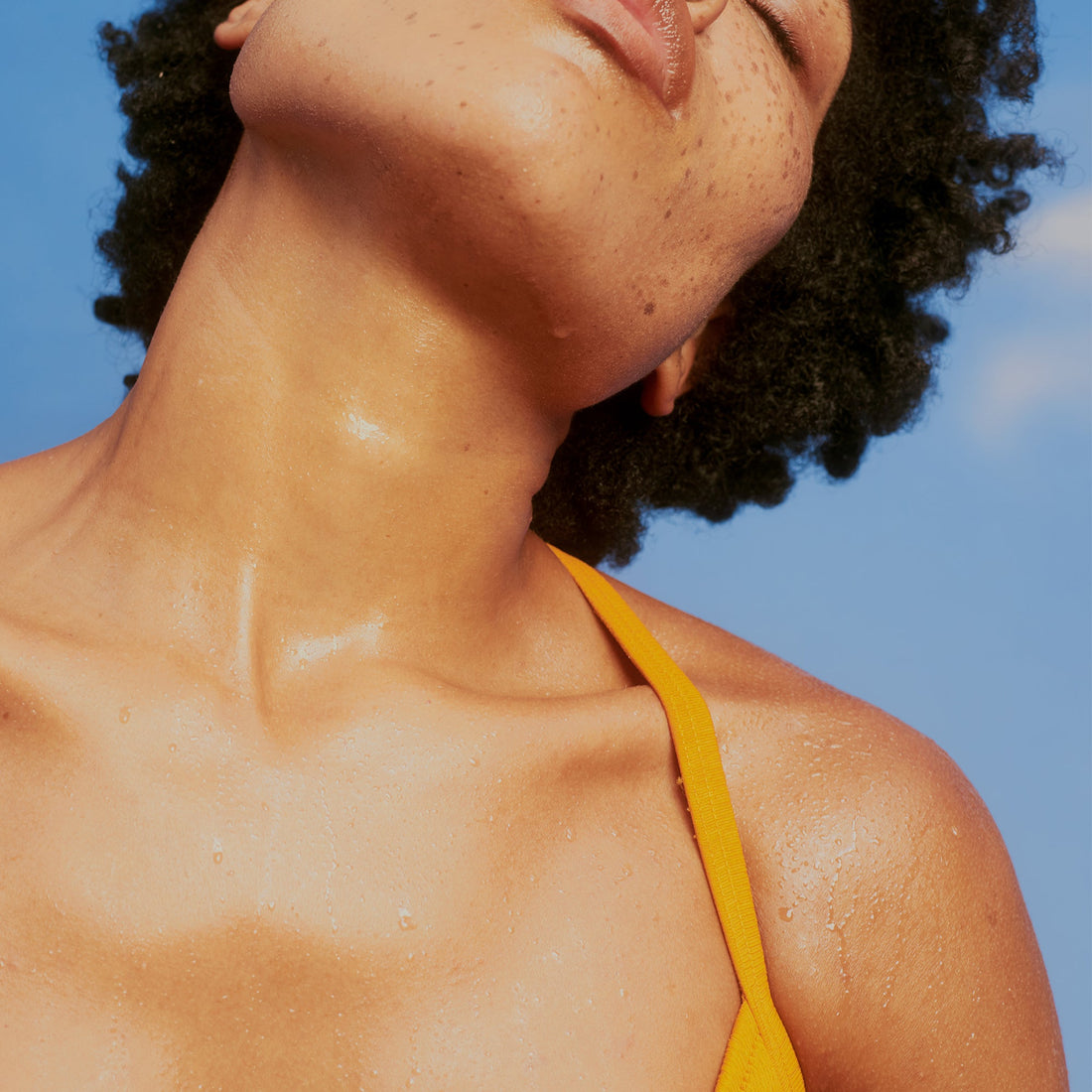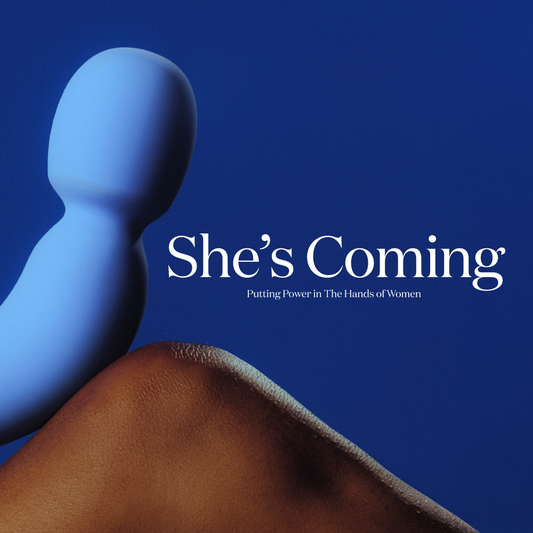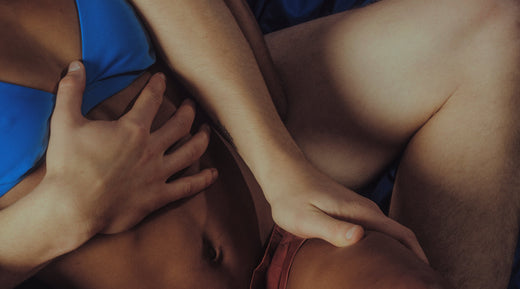Lynn Comella is Associate Professor of Gender and Sexuality Studies at the University Nevada, Las Vegas. She is the author of Vibrator Nation: How Feminist Sex-Toy Stores Changed the Business of Pleasure (Duke, 2017) and co-editor of New Views on Pornography: Sexuality, Politics, and the Law (Praeger 2015). Her research has been featured in the New York Times, Washington Post, The Atlantic, Rolling Stone, and other outlets.
We spoke with Lynn about the "good girl" myths of her teenhood, radical '90s lesbians, and the genius of Grace and Frankie.
What are your top 5 bedside essentials (i.e. lube, vibes, sleeping mask, books)?
1. A cup of coffee in the morning and a glass of wine in the evening. 2. Anything that might help me sleep: eye mask, scented candle, lavender essential oil, a cat by my side. 3. My phone, so when I’m wide awake at 3am I can scroll the headlines and play the New York Times Spelling Bee. 4. I don’t know if a TV show counts as a “bedside essential,” but I find the narrator’s voice on Forensic Files to be incredibly soothing. 5. Books. In addition to a stack of mysteries, I’m currently reading Tracy Clark-Flory’s new memoir, Want Me.
If you could tell your teenage self one thing about sex, what would you say?
Probably “don’t be so scared,” for starters. I was the opposite of a sexually adventurous teen. While “repressed” is too harsh of a word (I was a big fan of solo sex), I really bought into the idea, which was drilled into me by my parents and culturally reinforced in various ways, that “good girls didn’t,” so I didn’t. I didn’t date in high school and had my first kiss when I was 18. I also married the first man I had sex with when I was 20. That marriage lasted for five years and it wasn’t until it ended that I began to step into a freer, more empowered, and sexually confident self.
"I really bought into the idea, which was drilled into me by the culture, that 'good girls didn’t,' so I didn’t."
What question about sex and intimacy keeps coming up from your readers or sources?
As a researcher, I probably ask far more questions than others ask me. I’m drawn to particular kinds of questions and stories: those involving sexual trailblazers and renegades, women who challenge gender and sexual stereotypes, and who disrupt cultural norms and expectations. I am currently working with UNLV Special Collections and Archives to develop a designated Sexuality Collection and recently drove to California to pick up an archive from a donor who, along with her partner, was on the frontlines of lesbian and queer cultural production in San Francisco in the 1990s. Their papers are such a goldmine, and I have so many so many questions about the “who, what, why, how” of that era, which, although incredibly vibrant, is not well-documented.
So when I think about questions related to sex and intimacy, I’m currently fixated on the lesbians and queer women who moved to San Francisco following the 1989 Loma Prieta earthquake, when rents were cheap. They created all kinds of queer art and sexual culture, from music and spoken word to sex clubs and porn. Who were these badasses and what kind of mark did they leave on the sexual and cultural landscape of pre-dotcom San Francisco?
What does “self-care” mean to you?
The pandemic has really brought the idea of “self-care” into sharper relief for me. Right now it means a lot of gluten-free baking and long walks to get out of the house and keep my body moving. I listen to true crime podcasts on my walks and jot work ideas in my Notes app. I’m also pretty good at knowing when I need a day off and enjoy recharging by reading fiction or bingeing Netflix.
What harmful or useless sexual script have you learned to dismantle in your own life?
As I get older I’m increasingly aware of all of the useless sexual scripts about women and aging. I recently re-watched the Netflix series Grace and Frankie and there are so many great scenes and unabashed snippets of dialogue around everything from vaginal dryness to easy-to-grasp vibrators for older women with arthritis. I love watching these two female characters, both of whom are in their seventies, step into the sex tech space as entrepreneurs. The series is such an interesting—and welcome—contrast to shows like Sex and the City, Broad City, and Girls and I’m here for it.




















































